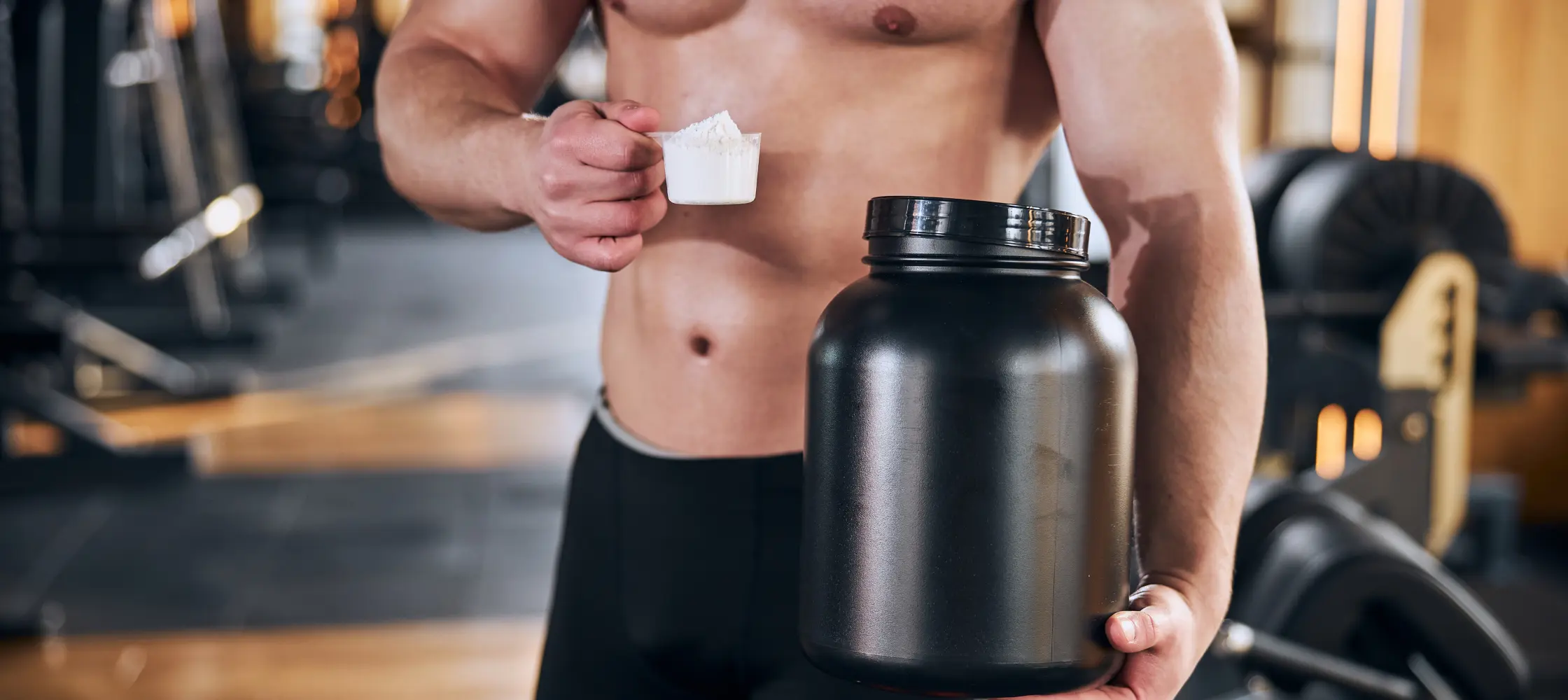
If you want to get the most out of your every workout in the gym, you might as well consider taking some workout supplements. There are many supplements available in the market ranging from protein bars to creatine to BCAAs. However most of the people consider supplements as steroids and believe that supplements cause kidney damage, hair loss, dehydration and muscle cramping. No matter what your goal is (muscle gain, weight loss or strength gain), you will make a great progress if you stick to a well-structured plan and exercise program. If you don’t have a set plan no matter which supplement you opt for, it will simply not work for you. Don’t expect miracles by adding some expensive supplements to your workout if the nutrition and workout plan is not in sync with each other. Making gains as a natural lifter is an extremely slow process and taking some supplements might help you get an extra 5-15% in terms of results, depending on how your body responds to it.
Popular workout supplements
Creatine is one of the top workout supplements recommended by sports scientists. Creatine is naturally found in your body’s muscles and in your brain. Creatine breaks down into phosphocreatine which provides rapid energy for muscle contractions. It is a quick source of muscle energy which allows for more reps. Creatine aids in long-term bone strength for weight trainers. However some water retention and cramping is reported with the use of creatine but these effects are only short termed. One should take around 3-5 grams of creatine a day for an effective workout. Although claims are made about creatine’s side effects and safety issues, none of them are supported by research. Some of its purported side effects are kidney damage, liver damage, weight gain, bloating, dehydration, muscle cramps and digestive problems to name a few. However none of them have been proven so far. You can take creatine in off and on cycles for a few weeks at a time.
Protein Powder offers loads of nutritional benefits and from a fitness point of view, it is used for enhancing muscle growth and repair and appetite control. Protein is a crucial component of every cell in your body. Most of the people get protein from their diet, but athletes exercise at higher volumes may want to increase their protein intake by taking supplements for it. Athletes need 0.5 to 0.9g of protein per pound of body weight a day and this amount could go up during times of intense training. Taking high amount of protein is not harmful from health perspective but going beyond the recommended dose is not going to benefit you either. Protein helps to keep you feeling fuller for longer period of time. It also helps in reducing cravings and increases muscle and mass strength. Protein boosts metabolism an increases fat burning process. It also helps you recover faster from an injury. When you eat too less protein, you can face trouble losing or maintaining weight. Lack of protein causes mood swings and moodiness and may result in poor concentration and memory problems. Proteins are considered long-chain amino acids that can be found in various foods like vegetables, seeds, legumes, eggs, fish, diary and meat. High-protein diets may also lower high blood pressure and heart disease overall. Taking very high-protein may result in digestive problems like constipation. Sometimes liver or kidney function can suffer when the diet contains too much protein.
BCAA stands for ‘Branched Chain Amino Acids’ which provides 3 of the 9 essential amino acid building blocks of muscle tissue. It helps protect lean muscle and guard against muscle wasting. These amino acids are essential as they cannot be made in the body. They contribute up to 33% of lean muscle mass. One of the most popular uses of BCAAs is to increase muscle growth. It also decreases muscle soreness after a workout and may help reduce the length and severity of DOMS (delayed onset muscle soreness). BCAAs may be useful in decreasing exercise-induces fatigue but are unlikely to improve exercise performance. It can also help to prevent muscle wasting or breakdown. BCAA supplements may improve the health outcomes of people with liver disease, while also possibly protecting against liver cancer. The best food source of BCAAs include beef, chicken breast, soy protein powder, canned tuna, salmon, eggs, Greek yogurt and parmesan cheese.
According to the National Institutes of Health’s Office of Dietary Supplements, supplements improve performance, reduce the risk of injury and enhance recovery. They are never meant to totally replace anything and one should be very careful as to which supplement is to be taken. Always look for a reputed product that has been in the market for quite some time and is trusted by top athletes and body builders. Always talk with your doctor before starting a new supplement as they may interfere with your ongoing medications and may cause side effects.
*The above article contents are based on information available on Internet. Readers may exercise their discretion and/or consult their experts
Your email address will not be published. Required fields are marked *
29 Jan, 2024
29 Jan, 2024
29 Jan, 2024
25 Jan, 2024